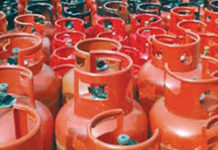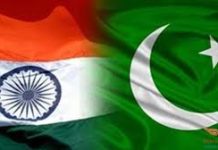By Muhammad Luqman
Pakistan’s former Prime Minister Syed Yousuf Raza Gilani has tested positive for COVID-19, his family members confirmed on Saturday.
Gilani, the country’s second ex-premier after Shahid Khaqan Abbasi to contract the virus in less than a week, has joined a long list of Pakistani politicians and parliamentarians infected by the coronavirus.
His son, Ali Kasim Gilani, tweeted that his father had to appear before anti-graft authorities i.e. National Accountability Bureau (NAB) a few days ago, despite the ongoing surge in COVID-19 cases in the South Asian country.
He said the former premier was now in self-isolation.
“Thank you [Prime Minister] Imran Khan’s govt and National Accountibilty [sic] Burearu [sic]! You have successfully put my father’s life in danger. His COVID-19 result came postive [sic],” he said in a tweet.
Gilani, a senior member of the center-left Pakistan Peoples Party, served as prime minister from 2008 to 2012, when he was disqualified from office by the Supreme Court. He has recently been accused by American blogger, Cynthia D. Ritchie of sexual harassment.
Apart from the two ex-premiers, other high-profile Pakistani politicians infected in recent days include opposition leader in the National Assembly Shehbaz Sharif, National Assembly Speaker Asad Qaiser, Railways Minister Sheikh Rasheed Ahmed, former Interior Minister Ahsan Iqbal, and Imran Ismail, Governor of the Sindh province.
Meanwhile, Shahid Afridi, former captain of the Pakistani cricket team, also confirmed on Saturday that he had tested positive for COVID-19.
Afridi had been engaged in charity work around the country during the coronavirus lockdown.
He represented Pakistan in international cricket between 1998 and 2018, earning worldwide repute as an explosive batsman and a top all-rounder.
Pakistan has recorded over 132,000 cases, including more than 2,500 deaths and 50,000 recoveries, so far.
Virus in South Asia
South Asia coronavirus cases have increased at the fastest rate globally in the past week, as the region becomes one of the latest pandemic hot spots.
Infections have risen by 27% in Pakistan, while Bangladesh cases spiked by 19% and 17% in India, according to data of the 20 most affected nations compiled by Bloomberg. Pakistan and Bangladesh also had their single biggest daily spike in fatalities.
As cases dwindle in the U.S. and Europe, they are still increasing in South America and South Asia. More than 136,000 cases were reported worldwide on Sunday, the most in a single day so far, with nearly 75% from 10 countries in the Americas and South Asia, according to WHO Director General Tedros Adhanom Ghebreyesus.
Countries across South Asia have started to ease their virus lockdowns as they attempt to balance rising cases against economic misery. Pakistan had expected a peak in June but now is expecting late July or August, Prime Minister Imran Khan said in an address to the nation on June 8.
“The world has eased lockdowns since even developed countries have decided they can’t survive with a prolonged lockdown,” said Khan in a televised briefing on the pandemic, noting the restrictions had a “devastating impact on unemployment and poverty in poor countries.”















